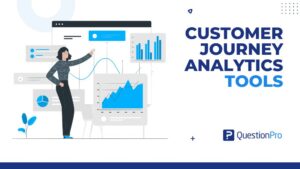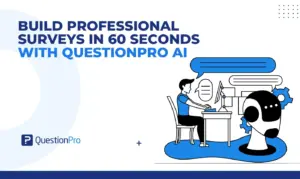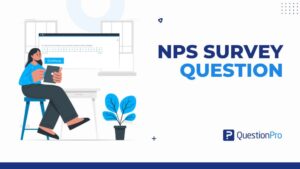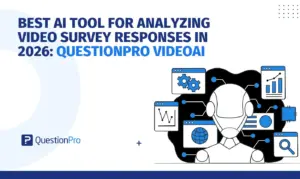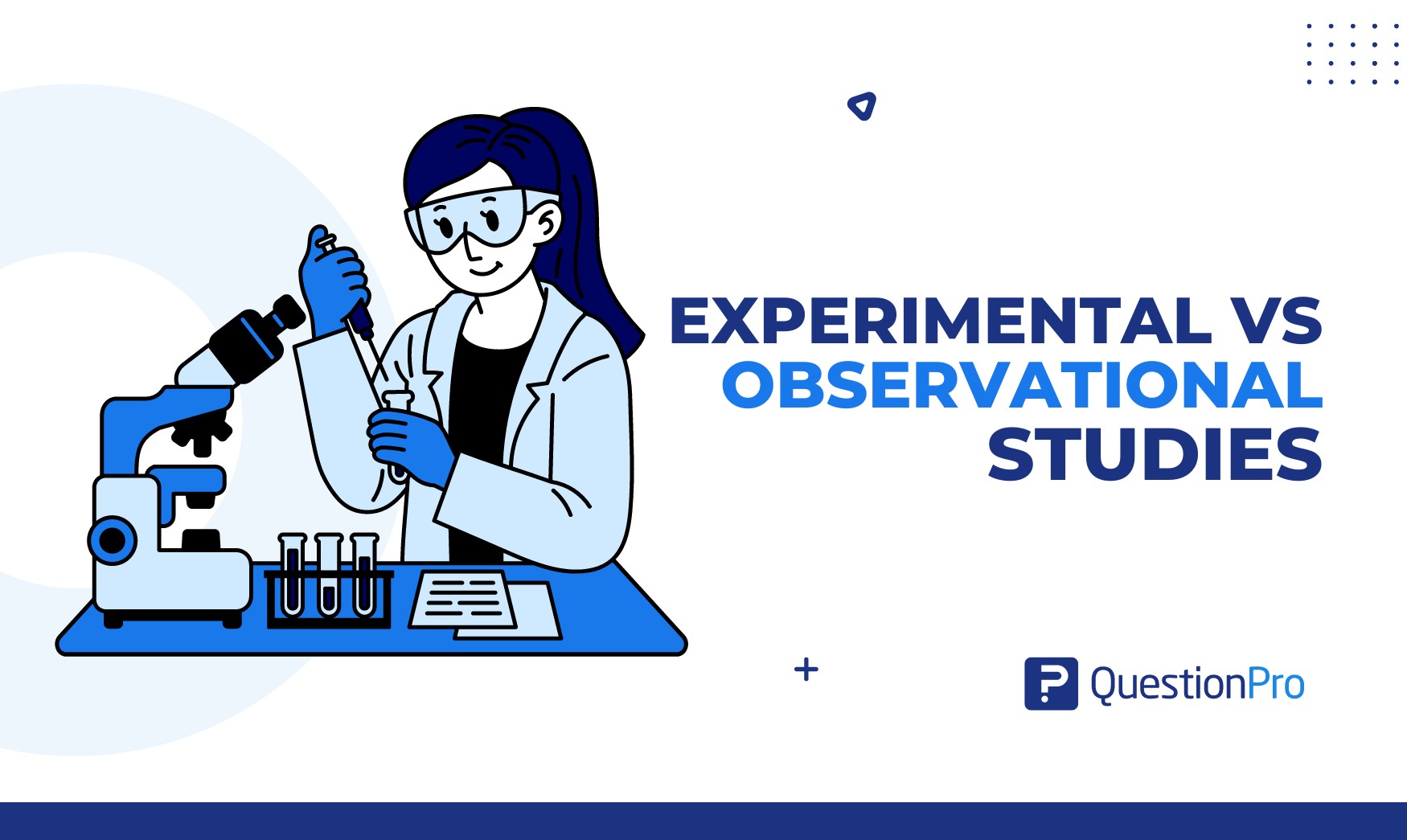
Understanding the differences between experimental vs observational studies is crucial for interpreting findings and drawing valid conclusions. Both methodologies are used extensively in various fields, including medicine, social sciences, and environmental studies.
Researchers often use observational and experimental studies to gather comprehensive data and draw robust conclusions about their investigating phenomena.
This blog post will explore what makes these two types of studies unique, their fundamental differences, and examples to illustrate their applications.
What is an Experimental Study?
An experimental study is a research design in which the investigator actively manipulates one or more variables to observe their effect on another variable. This type of study often takes place in a controlled environment, which allows researchers to establish cause-and-effect relationships.
Key Characteristics of Experimental Studies:
- Manipulation: Researchers manipulate the independent variable(s).
- Control: Other variables are kept constant to isolate the effect of the independent variable.
- Randomization: Subjects are randomly assigned to different groups to minimize bias.
- Replication: The study can be replicated to verify results.
Types of Experimental Study
- Laboratory Experiments: Conducted in a controlled environment where variables can be precisely controlled.
- Field Research: These are conducted in a natural setting but still involve manipulation and control of variables.
- Clinical Trials: Used in medical research and the healthcare industry to test the efficacy of new treatments or drugs.
Example of an Experimental Study:
Imagine a study to test the effectiveness of a new drug for reducing blood pressure. Researchers would:
- Randomly assign participants to two groups: receiving the drug and receiving a placebo.
- Ensure that participants do not know their group (double-blind procedure).
- Measure blood pressure before and after the intervention.
- Compare the changes in blood pressure between the two groups to determine the drug’s effectiveness.
What is an Observational Study?
An observational study is a research design in which the investigator observes subjects and measures variables without intervening or manipulating the study environment. This type of study is often used when manipulating impractical or unethical variables.
Key Characteristics of Observational Studies:
- No Manipulation: Researchers do not manipulate the independent variable.
- Natural Setting: Observations are made in a natural environment.
- Causation Limitations: It is difficult to establish cause-and-effect relationships due to the need for more control over variables.
- Descriptive: Often used to describe characteristics or outcomes.
Types of Observational Studies:
- Cohort Studies: Follow a control group of people over time to observe the development of outcomes.
- Case-Control Studies: Compare individuals with a specific outcome (cases) to those without (controls) to identify factors that might contribute to the outcome.
- Cross-Sectional Studies: Collect data from a population at a single point to analyze the prevalence of an outcome or characteristic.
Example of an Observational Study:
Consider a study examining the relationship between smoking and lung cancer. Researchers would:
- Identify a cohort of smokers and non-smokers.
- Follow both groups over time to record incidences of lung cancer.
- Analyze the data to observe any differences in cancer rates between smokers and non-smokers.
Difference Between Experimental vs Observational Studies
| Topic | Experimental Studies | Observational Studies |
| Manipulation | Yes | No |
| Control | High control over variables | Little to no control over variables |
| Randomization | Yes, often, random assignment of subjects | No random assignment |
| Environment | Controlled or laboratory settings | Natural or real-world settings |
| Causation | Can establish causation | Can identify correlations, not causation |
| Ethics and Practicality | May involve ethical concerns and be impractical | More ethical and practical in many cases |
| Cost and Time | Often more expensive and time-consuming | Generally less costly and faster |
Choosing Between Experimental and Observational Studies
The researchers relied on statistical analysis to interpret the results of randomized controlled trials, building upon the foundations established by prior research.
Use Experimental Studies When:
- Causality is Important: If determining a cause-and-effect relationship is crucial, experimental studies are the way to go.
- Variables Can Be Controlled: When you can manipulate and control the variables in a lab or controlled setting, experimental studies are suitable.
- Randomization is Possible: When random assignment of subjects is feasible and ethical, experimental designs are appropriate.
Use Observational Studies When:
- Ethical Concerns Exist: If manipulating variables is unethical, such as exposing individuals to harmful substances, observational studies are necessary.
- Practical Constraints Apply: When experimental studies are impractical due to cost or logistics, observational studies can be a viable alternative.
- Natural Settings Are Required: If studying phenomena in their natural environment is essential, observational studies are the right choice.
Strengths and Limitations
Experimental Studies
Strengths:
- Establish Causality: Experimental studies can establish causal relationships between variables by controlling and using randomization.
- Control Over Confounding Variables: The controlled environment allows researchers to minimize the influence of external variables that might skew results.
- Repeatability: Experiments can often be repeated to verify results and ensure consistency.
Limitations:
- Ethical Concerns: Manipulating variables may be unethical in certain situations, such as exposing individuals to harmful conditions.
- Artificial Environment: The controlled setting may not reflect real-world conditions, potentially affecting the generalizability of results.
- Cost and Complexity: Experimental studies can be costly and logistically complex, especially with large sample sizes.
Observational Studies
Strengths:
- Real-World Insights: Observational studies provide valuable insights into how variables interact in natural settings.
- Ethical and Practical: These studies avoid ethical concerns associated with manipulation and can be more practical regarding cost and time.
- Diverse Applications: Observational studies can be used in various fields and situations where experiments are not feasible.
Limitations:
- Lack of Causality: It’s easier to establish causation with manipulation, and results are limited to identifying correlations.
- Potential for Confounding: Uncontrolled external variables may influence the results, leading to biased conclusions.
- Observer Bias: Researchers may unintentionally influence outcomes through their expectations or interpretations of data.
Examples in Various Fields
Medicine
- Experimental Study: Clinical trials testing the effectiveness of a new drug against a placebo to determine its impact on patient recovery.
- Observational Study: Studying the dietary habits of different populations to identify potential links between nutrition and disease prevalence.
Psychology
- Experimental Study: Conducting a lab experiment to test the effect of sleep deprivation on cognitive performance by controlling sleep hours and measuring test scores.
- Observational Study: Observing social interactions in a public setting to explore natural communication patterns without intervention.
Environmental Science
- Experimental Study: Testing the impact of a specific pollutant on plant growth in a controlled greenhouse setting.
- Observational Study: Monitoring wildlife populations in a natural habitat to assess the effects of climate change on species distribution.
How QuestionPro Research Can Help in Experimental vs Observational Studies
Choosing between experimental and observational studies is a critical decision that can significantly impact the outcomes and interpretations of a study. QuestionPro Research offers powerful tools and features that can enhance both types of studies, giving researchers the flexibility and capability to gather, analyze, and interpret data effectively.
Enhancing Experimental Studies with QuestionPro
Experimental studies require a high degree of control over variables, randomization, and, often, repeated trials to establish causal relationships. QuestionPro excels in facilitating these requirements through several key features:
- Survey Design and Distribution: With QuestionPro, researchers can design intricate surveys tailored to their experimental needs. The platform supports random assignment of participants to different groups, ensuring unbiased distribution and enhancing the study’s validity.
- Data Collection and Management: Real-time data collection and management tools allow researchers to monitor responses as they come in. This is crucial for experimental studies where data collection timing and sequence can impact the results.
- Advanced Analytics: QuestionPro offers robust analytical tools that can handle complex data sets, enabling researchers to conduct in-depth statistical analyses to determine the effects of the experimental interventions.
Supporting Observational Studies with QuestionPro
Observational studies involve gathering data without manipulating variables, focusing on natural settings and real-world scenarios. QuestionPro’s capabilities are well-suited for these studies as well:
- Customizable Surveys: Researchers can create detailed surveys to capture a wide range of observational data. QuestionPro’s customizable templates and question types allow for flexibility in capturing nuanced information.
- Mobile Data Collection: For field research, QuestionPro’s mobile app enables data collection on the go, making it easier to conduct studies in diverse settings without internet connectivity.
- Longitudinal Data Tracking: Observational studies often require data collection over extended periods. QuestionPro’s platform supports longitudinal studies, allowing researchers to track changes and trends.
Conclusion
Experimental and observational studies are essential tools in the researcher’s toolkit. Each serves a unique purpose and offers distinct advantages and limitations. By understanding their differences, researchers can choose the most appropriate study design for their specific objectives, ensuring their findings are valid and applicable to real-world situations.
Whether establishing causality through experimental studies or exploring correlations with observational research designs, the insights gained from these methodologies continue to shape our understanding of the world around us.
Whether conducting experimental or observational studies, QuestionPro Research provides a comprehensive suite of tools that enhance research efficiency, accuracy, and depth. By leveraging its advanced features, researchers can ensure that their studies are well-designed, their data is robustly analyzed, and their conclusions are reliable and impactful.




